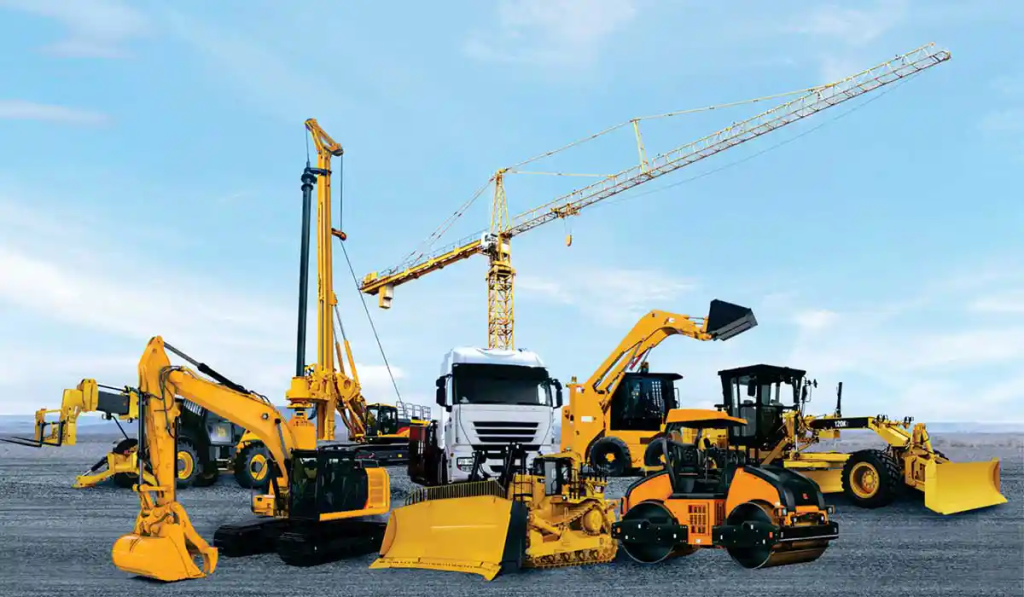Heavy equipment rental has been a major change area for the construction industry. In a world where technology is constantly evolving, economic factors are changing, and environmental concerns are increasing, staying on top of things will be crucial to the future success of construction. This article explores the latest trends in heavy construction equipment rentals that will shape the future.
1. Telematics & IoT – The Future of Telematics
Construction equipment rental is being optimized by telematics. Telematics devices like GPS or sensors can monitor equipment in real-time, track usage and perform predictive maintenance. This technology allows construction companies to gain valuable information to increase efficiency, reduce downtimes, and improve safety. Heavy equipment rental will be integrating even more sophisticated Telematics solutions in the future.
2. Electric and hybrid Equipment
Construction firms are looking for ways to reduce the carbon footprint they leave behind. Electric and hybrid equipment for heavy-duty is becoming more popular in the industry. Electric excavators, loaders, and other equipment are quieter. In addition, they produce no emissions at the construction site, and their operating costs will decrease over time. Heavy equipment rental firms are expected to increase their fleets, adding electric and hybrid vehicles to meet eco-friendly construction methods.
3. Remote Operation Automation
The construction industry is changing due to automation. More remote-controlled equipment, including autonomous vehicles, are used on construction sites. This improves safety and increases efficiency. Operators can remotely control equipment at a safe distance. This reduces accidents. Shortly, we might see a higher level of automation and integration of AI to enhance equipment performance.
4. Rent on Demand: Platforms
On-demand rentals are becoming increasingly popular in construction. These platforms work like ride-sharing services, connecting companies to equipment located in the area. This trend offers greater convenience, flexibility and cost-effectiveness, as equipment is available to rent when and where required, without long-term agreements or ownership.
5. Virtual Reality Training (VR) and Augmented Reality Training (AR)
AR and Virtual Reality technologies are revolutionizing how heavy equipment operators learn. Virtual simulators can provide construction workers with realistic, hands-on instruction, reducing their learning curve and increasing safety. AR and virtual reality training modules are expected to become standard in heavy equipment rentals, ensuring operators are properly prepared for advanced machinery.
6. Sustainable Construction Techniques
Sustainability is no more a buzzword. In the construction world, it has become a driving factor. The heavy equipment rental companies are expected to invest in energy-efficient and eco-friendly equipment to align themselves with green construction practices. Also, there's an increasing emphasis on recycling, repurposing, and minimizing projects' environmental impact.
7. Data-Driven Decision-Making
In the construction industry, data analytics is becoming more and more important. Heavy equipment rental companies collect vast amounts of information on the performance of equipment, maintenance schedules, and usage patterns. Analyzing these data can help make better-informed decisions. They will also enable construction companies to reduce costs, improve productivity, and optimize their rental equipment.
Conclusion
Heavy equipment rentals are at the forefront in this rapidly evolving future. From the latest technology, like telematics & automation, to sustainable practices & flexible rental solutions, this industry is becoming more efficient and environmentally aware.
Construction companies that embrace and partner with progressive heavy equipment rental companies will be best positioned to succeed as the landscape changes. By staying ahead and leveraging innovations, the construction sector can continue to build an improved, more sustainable future.

